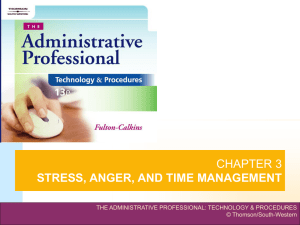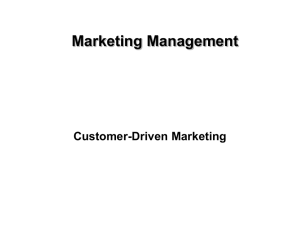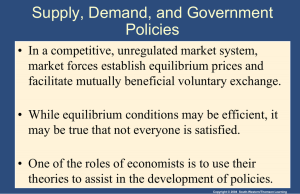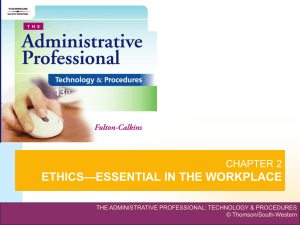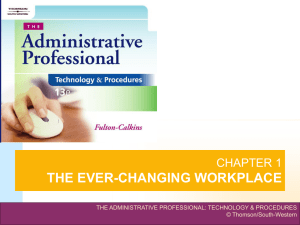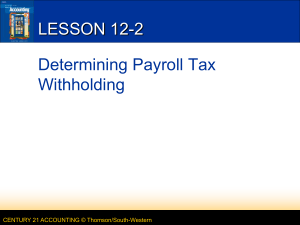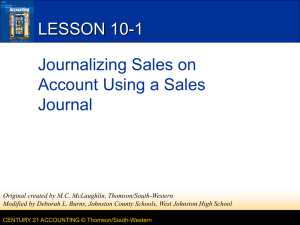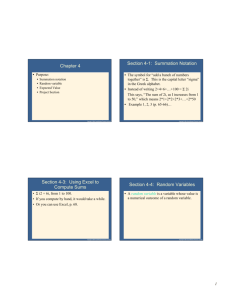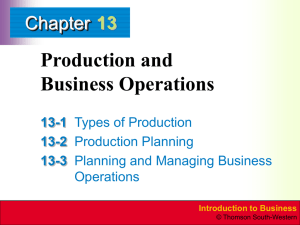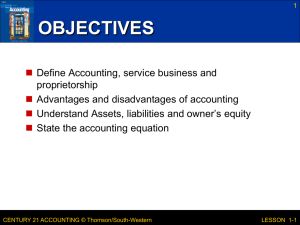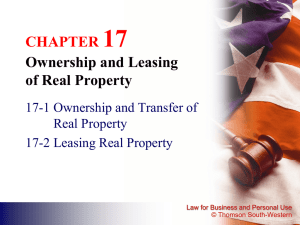Chapter 1 - Edmonson County Schools
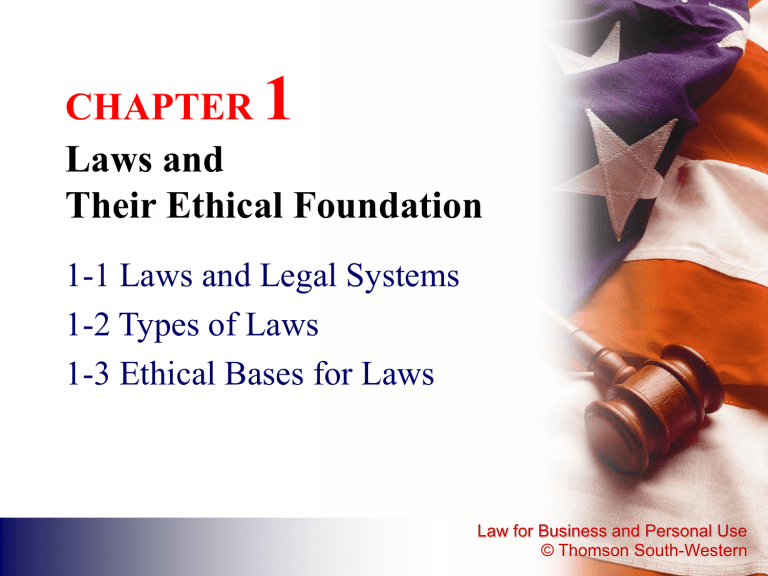
CHAPTER
1
Laws and
Their Ethical Foundation
1-1 Laws and Legal Systems
1-2 Types of Laws
1-3 Ethical Bases for Laws
Law for Business and Personal Use
© Thomson South-Western
1-1
Laws and Legal Systems
GOALS
Explain the stages in the growth of law
Describe the differences between common law and positive law
Identify the origin of the U.S. legal system
Chapter 1
Slide 2
Law for Business and Personal Use
© Thomson South-Western
FOCUS
Make a list of rules the school enforces.
Make a second list of rules you must live by in your families.
How do these rules affect your life?
Which rules would you like to change? Why?
How would the changes affect you, your family, or school?
Chapter 1
Slide 3
Law for Business and Personal Use
© Thomson South-Western
WHAT IS LAW?
Stages in the growth of law
Common law versus positive law
Chapter 1
Slide 4
Law for Business and Personal Use
© Thomson South-Western
Chapter 1
Slide 5
How does common law differ from positive law?
Law for Business and Personal Use
© Thomson South-Western
WHAT IS THE ORIGIN OF THE
U.S. LEGAL SYSTEM?
English common law
King’s Bench
Jury
An example
Advantages of English common law
Equity: An alternative to common law
Chapter 1
Slide 6
Law for Business and Personal Use
© Thomson South-Western
Chapter 1
Slide 7
On which early legal system is the
U.S. legal system based?
Law for Business and Personal Use
© Thomson South-Western
1-2
Types of Laws
GOALS
Identify the four sources of law
Discuss how to resolve conflicts between different sources of laws
Compare and contrast criminal and civil law, and substantive and procedural law
Chapter 1
Slide 8
Law for Business and Personal Use
© Thomson South-Western
FOCUS
What is law?
Chapter 1
Slide 9
Law for Business and Personal Use
© Thomson South-Western
WHAT ARE THE SOURCES
OF LAW?
Constitutions
Statutes
Case law
Administrative regulations
Chapter 1
Slide 10
Law for Business and Personal Use
© Thomson South-Western
Chapter 1
Slide 11
What are the four sources of law?
Law for Business and Personal Use
© Thomson South-Western
WHAT HAPPENS WHEN LAWS
CONFLICT?
Constitutions and validity
Statutes and validity
Administrative regulations and validity
Case law and validity
Chapter 1
Slide 12
Law for Business and Personal Use
© Thomson South-Western
Chapter 1
Slide 13
Which source of law in the United
States is the highest authority?
Law for Business and Personal Use
© Thomson South-Western
WHAT ARE THE MAIN
TYPES OF LAWS?
Civil and criminal laws
Procedural and substantive laws
Business law
Uniform business laws
Chapter 1
Slide 14
Law for Business and Personal Use
© Thomson South-Western
Chapter 1
Slide 15
Compare and contrast criminal and civil law and substantive and procedural law.
Law for Business and Personal Use
© Thomson South-Western
TYPES OF LAW
Constitutional law Based on constitutions
Statutes Enacted by legislative bodies
Administrative law Rulings by administrative agencies
Civil law Addresses wrongs done to individuals
Criminal law
Procedural law
Addresses wrongs done to society
Deals with methods of enforcing legal rights and duties
Substantive law
Business law
Defines legal rights and duties
Rules that apply to business transactions
Chapter 1
Slide 16
Law for Business and Personal Use
© Thomson South-Western
1-3
Ethical Bases for Laws
GOALS
Define ethics
Compare and contrast ethics based on consequences with ethics based on systems of rules
Discuss ways in which ethics are reflected in laws
Chapter 1
Slide 17
Law for Business and Personal Use
© Thomson South-Western
FOCUS
What does ethics mean?
Chapter 1
Slide 18
Law for Business and Personal Use
© Thomson South-Western
ETHICS AND THE LAW
Basic forms of ethical reasoning
Consequences-based ethical reasoning
Rule-based ethical reasoning
Ethics reflected in laws
Chapter 1
Slide 19
Law for Business and Personal Use
© Thomson South-Western
Chapter 1
Slide 20
In the U.S. system of democracy, how are ethics reflected in laws?
Law for Business and Personal Use
© Thomson South-Western
